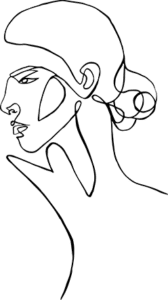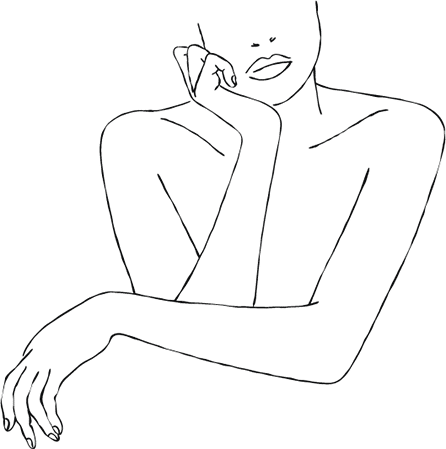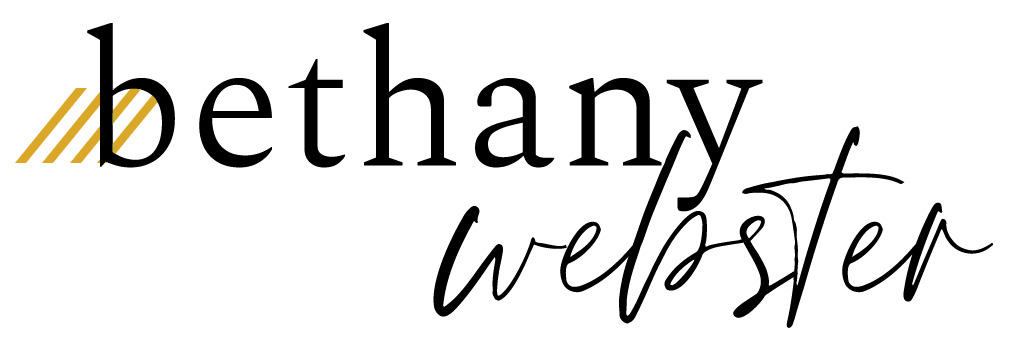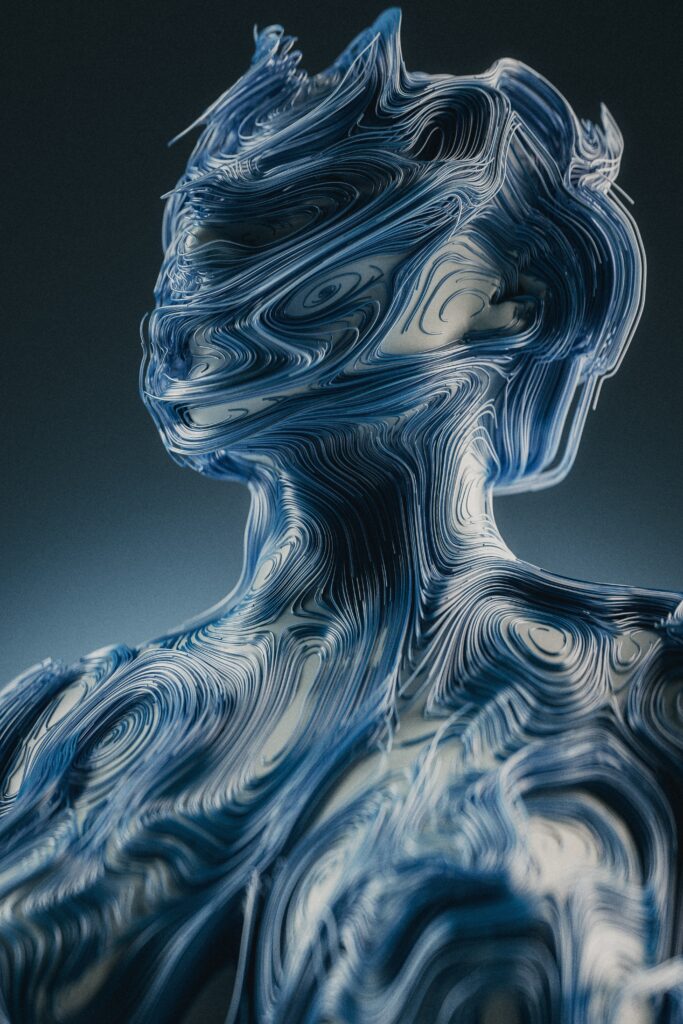A Primer on Mother Wound Psychology

The Mother Wound has many impacts and manifestations that keep women small, oppressed, depressed, stuck, and beyond. While the Mother Wound starts in early childhood, namely as patriarchal messaging transferred from mother to daughter and via family dynamics, It leads to enmeshment, lack of boundaries, codependence, and transference of accountability in adulthood. And, it is so insidious that it leaves many women feeling like they cannot name the source of their pain, how they feel, or even identify their true selves. Learn about Mother Wound psychology with Bethany Webster’s glossary of terms.
“The patriarchal thread that runs through all dysfunctional dynamics between mothers and daughters is the demand for obedience in exchange for love.”
-Bethany Webster
The Mother Wound Glossary
Whether you just discovered The Mother Wound or you are diving deeper into your healing journey, here’s a primer on terms that will help you understand Mother Wound psychology and its impacts.
Benevolent Patriarchy
Benevolent patriarchy is the widely held belief that as women we must maintain access to and good favor with white men in order to survive. It’s the unconscious belief that compliance with systemic oppression is crucial to be safe, approved of, and seen positively, and that if we follow the rules, we will be chosen, protected, valued, benefited, rescued, acknowledged, saved, and more. It’s an illusion because a payoff for giving our power away never comes.
For centuries, access to white males has been a survival strategy, a scarce resource that ensured status and comfort for women in the absence of other opportunities for women.
This belief in benevolent patriarchy fosters conflict and power struggles between women. It also causes women to project benevolence where there is actual danger, as we are conditioned and groomed from birth to be blind and dismissive to our own oppression and that of other women. Waking up to the malevolence of patriarchal values, power dynamics and how they show up in our relationships, organizations, and culture at large, can be very disorienting and alarming, but in that discovery is the possible reclaiming of our true intuitions and integrity, which can help us to further liberate ourselves, our daughters and other women from the patriarchy.
Learn more in this article: The Illusion of Benevolent Patriarchy and The Good Girl
Deprivation Consciousness
Deprivation consciousness is when women feel owed and entitled due to their level of sacrifice, particularly mothers, and the inner split they had to make within themselves to be acceptable and loved as women in patriarchal cultures. For many centuries women and mothers have been deprived of their full humanity in a variety of ways. To whatever level a mother has felt deprived herself, she may unconsciously project her rage and a sense of entitlement onto her daughter, causing some degree of conflict in the relationship and damage to a daughter’s development and self-esteem. Daughters may feel pressure to self-sabotage or an intense sense of guilt for becoming self-actualized in the face of their mothers’ deep sense of deprivation. Healing deprivation consciousness happens as we do the inner work of healing the Mother Wound.
Learn more in this article: Understanding Self-Sabotage and The Mother Wound
Emergence
Mother Wound healing leads to the Emergence of the true self. Through integration and embodiment of Mother Wound work, a woman sheds the layers of conditioning that have kept her small, sits with her pain to yield empowerment, and gives herself the love her mother could not. The Emergent Woman is an unapologetic, vibrant, embodied, liberated, and courageous woman—living her dreams and breathing a new world into consciousness.
Learn more in this article: The Mother Wound as Initiation into the Divine Feminine
Emotional Caretaker
Female children are conditioned to feel responsible for the welfare and happiness of others while neglecting their own. Self-neglect is seen as a badge of honor. This results in girls growing up to be emotional caretakers and with a deeply ingrained pattern of managing other people’s emotions, feelings, and even health as an indication of their worth. Expending energy and emotional labor as an emotional caretaker comes at a great cost and is often expected of adult women in work and personal relationships. It also deprives others of the opportunity for emotional growth and accountability.
Learn more in this article: Here’s Why You Need to Release the Role of Emotional Caretaker
Impossible Dream
The Impossible Dream is the unconscious, child-like belief that, if we somehow change or improve ourselves enough to please our mothers, then our mothers will eventually transform into the mothers we always needed (e.g., strong, unconditionally loving, happy, nurturing, etc.) It’s the Impossible Dream because our childhood is over: we can never go back, change the past and get what we need. Giving up and grieving the Impossible Dream is a key to transforming ourselves and our culture. It’s about releasing the attachment to our mother becoming a certain way in order for us to feel happy, whole, and worthy. It releases the pressure on ourselves to be different in order to be loved.
The impossible dream is a survival mechanism of a child who feels neglected or abused to some degree. Feeling shame and a drive to please the mother gives the child a sense of control in an otherwise powerless situation for her. As an adult, the impossible dream can also be projected onto other people, such as a spouse, partner, sibling, child, or even colleagues. Giving up the impossible dream is a key milestone in healing the Mother Wound. In so doing, we grieve what we could not change, we accept the past, we accept our mother’s limitations, we cultivate the loving inner mother within and free the inner child from imprisoning trauma-based beliefs and patterns. As a result, we give ourselves permission as women to be our authentic selves and honor our true desires, dreams, needs, and boundaries without guilt, fear, or shame.
Learn More: A Mother’s Pain – Why You Can’t Save Your Mother
Inner Child
The inner child is living energy inside of us, a part of our subconscious mind living at the level of development we were when we may have experienced some trauma or neglect in our childhood. The inner child’s main concern is safety and when triggered, her fears can control our adult behavior below our conscious awareness, limiting us in a variety of ways, until we become conscious of this. An inner child narrative can also be conceptualized as traumatically-influenced neurocircuitry in our amygdala that gets activated in times of stress.
The inner child can appear at different ages and stages of development depending on what age we were at the time some trauma occurred. Creating an inner mothering practice by proactively caring for the inner child and inner teenager is key to healing the Mother Wound.
Learn More: Explore How Your Inner Child Narrative Influences Your Life Today
Inner Mother
Developmentally, our relationship with our mother serves as a template for our relationship with ourselves. The inner mother starts out as a duplicate of our external mother, which can manifest as a harsh inner critic and negative internal narratives that perpetuate self-doubt and shame. The internalization of these negative narratives was part of surviving childhood and gaining social approval as we grew up. As adult women, we can heal by giving ourselves what our mothers could not give us. Over time, we become our own source of fulfillment, encouragement, affirmation, love, strength, and more. While we cannot change the past, we can provide an inner sanctuary of love and support for the young child within us.
An Inner Mother practice is essential for healing the Mother Wound. It helps us to untangle what is a false narrative, created during childhood for protection, and what is real now.
Over time we transfer the attachment from our outer mother (with her own unique beliefs, shortcomings, and flaws) to our inner mother, who CAN meet our own needs, as we learn to become the mother we’ve always wanted, to ourselves. Inner child parts that were split off become more integrated and we become more effective and confident in our lives as adult women. This is not about blaming mothers or making our mothers wrong; rather it is about taking responsibility for our childhoods and preventing intergenerational wounds from being passed down.
Learn More: Explore the Practice of “Validate and Differentiate” Essential to Inner Mothering
Learn More: See How Your Inner Mother Can Help Heal Your Intimacy Issues

Legacy of Female Shame
Mothers tend to be either idealized or blamed: they are seen through a polarized lens. The cultural taboo around the complexity in the mother-daughter relationship leaves many daughters feeling shame for not meeting the cultural ideal of the “perfect” daughter—and perpetuates a legacy of female shame. In past generations, women were expected to hide their pain. As a result, denial became conflated with love. Suppression of feelings and emotions was seen as tough, brave, and necessary for external approval in the world.
Emotional experiences such as being messy, confused, angry, sad, overwhelmed with grief, exhausted, etc. are seen as liabilities and weaknesses to be ashamed of and suppressed. But these emotional experiences are an inherent and vital part of our humanity: they are what make depth and meaning possible. Overcoming the Legacy of Female Shame is a critical part of healing the Mother Wound.
Patriarchy romanticizes a vanquishing and termination of female vulnerabilities.
Learn More: Learn more in this article: The Legacy of Female Shame and How to Disrupt It
Maternal Horizon
The Maternal Horizon is the point when a daughter’s emotional and psychological growth, experience, and success surpasses the capacity and opportunities of her mother. It can cause tension in the mother-daughter relationship, as the mother unconsciously grieves her lack of opportunity or as the mother tries to force the daughters into old patterns. Many women experience psychological “turbulence” (fear, shame, or guilt) at the maternal horizon, especially when she is about to exceed their mother in some way, internally or externally. As we heal the Mother Wound and cultivate the Inner Mother, this turbulence subsides and we can more confidently experience the possibilities and opportunities which our mothers may have not, in their own lives.
When we break the cycles of pain and find our maternal horizon, this can bring up feelings of loneliness and grief—that our mothers can’t come with us or don’t want to come with us to new insights, realizations, or ways of doing things.
And, some mothers will criticize, bully, and harm their daughters when they do things differently, perceiving their daughters’ growth as an affront or personal attack.
Learn More: The Legacy of Female Shame and How to Disrupt It
Momipulation
Momipulation is the conscious/unconscious manipulation tactic that is exhibited by a mother in a relationship where the daughter asserts her independence, sovereignty, and boundaries. These tactics include gaslighting, silencing, guilting, ignoring, and many others. As an example, when you ask your mother for space and she responds by ignoring your calls for days or weeks. Or, when you say ‘no’ and receive a reply focused on all the things your mother did for you that warrant a ‘yes,’ including your birth.
Mother Blame
Mother blame is the cavalier blaming of mothers for any issues an adult may have. It is often used when people blame mothers for any or all troubles or challenges. In a patriarchy, the whole system blames the mother: from mental health professionals to the legal system. It is a patriarchal strategy that perpetuates the oppression of women by not acknowledging the socio-economic environment they must mother in. Though mother blame is unfair, the reaction to mother blame silences and dismisses the experiences of children. By nature, “mother blame” silences and prevents the critical examination of mothers required for most daughters and children to heal. It also prevents women and mothers from having a place of honor and respect they deserve in society.
The blaming of mothers surfaces a deep shame that women develop as mothers in patriarchy. Because they have been denied their identity, rights, and personhood for so long, they’ve internalized their experience to a degree that keeps them blind to how they’ve injured their children (and often unwilling to even tolerate or hear about their children’s experiences).
This internalization may be a survival response but it prevents collective healing. Often all critical examination of a mother is called mother blame. Yet, the critical examination of a relationship is essential and healthy: it is paramount to hold yourself and your mother accountable to true healing and growth. Healing the Mother Wound is about taking responsibility for one’s childhood trauma and examining our history, not for the purpose of assigning blame, but for the purpose of growth, healing, and transformation. Ultimately, healing the Mother Wound is NOT about our mothers in the end, but about women owning our gifts without shame.
Learn more in this article: You Don’t Owe Your Mother Your Life
Mother Gap
The Mother Gap is the gap between what you actually needed as a child from your mother and what you actually received from her as a child. This includes her capacity to love, support, listen, and grow. This gap or deficit may be worsened if the mother silenced, punished, or criticized the daughter for individuating. You can consciously fill your Mother Gap by cultivating your inner mother and mothering yourself from within. As we fill the Mother Gap through the practice of inner mothering, we heal the Mother Wound, replacing those early deficits and realizing our true worth and wholeness. Through this process, you celebrate how exceptional you truly are—without shame.
Learn More: Enduring Discomfort for the Sake of Transformation.
Mother Line
The Mother Line is the line of maternal ancestors before a daughter—and all the patriarchal messages and patterns of oppression they’ve inherited and passed down. It’s a paradox that we actually heal our mother line when we disrupt the patriarchal patterns in the mother line, not when we remain complicit with the patriarchal patterns to maintain surface-level peace. It takes grit and courage to refuse to comply with patriarchal patterns that have generational momentum in our families. To heal the Mother Wound, to realize our wholeness as sovereign beings, a rupture in their mother line occurs as we become aware of and disrupt the patterns and messages we’ve inherited, so they can become fully initiated into our own lives.
Learn More: The Rupture of The Mother Line and the Cost of Becoming Real
Mother Tantrum
Mother Tantrums are upsets and childish behaviors exhibited by the mother when a daughter does not obey or comply with her values, expectations, or beliefs. This can happen when the unhealed inner child within a mother starts projecting unprocessed pain onto her daughter in response to the daughter not complying with an unspoken mandate to stay non-threatening to her. A mother tantrum can be expected if the daughter has had the role of being subservient, deferential, or submissive to the mother, and is now changing the dynamic in the relationship by more fully expressing her authentic, true self around her mother. This could be in the form of the daughter setting boundaries, speaking her truth, limiting contact, making authentic choices that are not necessarily in alignment with the beliefs of the mother, etc.
Mother Tantrums are the regressive energy of the angry child within that the mother has yet to integrate and heal.
It can range from a minor upset to a full-on episode that can include the mother flying into a vicious rage, withdrawing or sulking, or bringing up every mistake you ever made to shame you back into being her emotional crutch. The intensity or duration of the tantrum depends on how severe her Mother Wound is.
Learn More: Understanding Self-Sabotage and The Mother Wound

Mother Wound
Mother Wound psychology has four levels: personal, cultural, spiritual, and planetary.
Personal Mother Wound Psychology
The personal Mother Wound is an internalized set of limiting beliefs and behaviors that are a result of the early dynamics with one’s mother. The Mother Wound is how patriarchal beliefs and values get passed down through generations of women; values such as, “Don’t rock the boat. Put other people first. Suppress your feelings to be liked,” etc. The Mother Wound is how our basic human needs for love, safety, and belonging intersect with patriarchal values of women staying small, compliant, and non-threatening. The Mother Wound functions like an “invisible fence,” causing us to stay unconsciously confined within certain self-limiting thoughts, beliefs, and behaviors, which cause us to betray, limit, and abandon ourselves as a means of being liked, approved of, and feeling safe in a world that is hostile to women.
The Mother Wound may contain both developmental trauma in the mother-child relationship and/ or the ways in which mothers pressure their daughters to comply with patriarchal values as a condition of the relationship.
Cultural Mother Wound Psychology
On the collective level, the female body and the Feminine are devalued, creating dysfunction, imbalance, and toxicity in the culture as a whole. Between women at large, the dysfunctional coping mechanisms have resulted from generations of female oppression and include comparison, shame, attenuation, and guilt. Manifestations include emotional caretaking, lack of boundaries, self-sabotage, eating disorders, depression, and more.
Spiritual Mother Wound Psychology
On a spiritual level, the Mother Wound is a feeling of separation and disconnection from life itself. In the first days and months of our lives, Mother Is World, Mother is Life, etc. If there is any degree of neglect, harm, or abuse in that first relationship, life itself can feel hostile, cruel, and untrustworthy to some degree. This leaves us to feel a sense of alienation and isolation even into adulthood. We may question whether there is benevolence to life at all.
As we heal our personal Mother Wound, it is as though a wall between us and life itself begins to dissolve and we begin to experience directly and viscerally a profound oneness with all life.
With our “trauma goggles” increasingly dissolving, our senses come alive and we can palpably experience the reality in each moment, that life is good, benevolent, trustworthy, and safe. We realize that shame is a lie and that at our core we have always been good, whole, innocent, and love itself. We finally feel a true sense of belonging and connection—and that love is the true reality. With this realization, the impulse to strive, prove, consume and compare with others falls away. The present moment becomes enough. Life becomes more simple, peaceful, and playful.
Planetary Mother Wound Psychology
On a planetary level, the Mother Wound shows up in how we as humanity, exploit, plunder, and pollute the earth—treating her as an object with infinite resources, rather than a living being who supports us and with whom we must live in respect and balance with. As we heal, our sense of connection, love, and respect for the earth grows, as well as the motivation to take empowered action on her behalf.
“We have to highlight the ways women perpetuate and sustain patriarchal culture.” –bell hooks
Parentified Daughter / Good Girl
A simple definition of a parentified daughter is when a daughter plays the role of mother for her own mother; the roles are reversed. Often a parentified daughter must grow up very fast and lose the chance to be a child, as she is expected to manage the emotional and/or physical needs of her mother and/or father. This kind of dynamic sets up the daughter for low self-esteem, poor boundaries, a deep sense of shame, and codependent relationships. Often these daughters grow up to be high-achievers and/or emotional caretakers (among other patterns). Major challenges for these women can be self-care, self-compassion, and self-love.
Patriarchal values that support the parentification of female children have been in place for centuries through the belief that female children are particularly adept as caretakers, emotional laborers, and the dumping ground for disowned family wounds and secrets.
Learn More: Read About Parentified Daughters and The Impacts in Adulthood
Patriarchal Bind / Double Bind
The Patriarchal Bind or Double Bind is a psychological bind women face when they seek independence. It is the pain of possible rejection and humiliation for setting boundaries, taking up space, speaking their mind, etc. versus the pain of being increasingly cut off and disconnected from ourselves for NOT setting boundaries, taking up space, speaking their minds, etc. We need to overturn the lie that we are too much, the lie that if women are truly independent then we represent a threat to civilization. Causing us to distrust ourselves and other women has been an article of control, a way to keep women docile, doubtful, and thus, psychologically malleable and adaptable to the dysfunctional status quo of patriarchy. The Double Bind is an illusion because we can see affirmation and fulfillment in ourselves and by healing the Mother Wound.
Learn More: Why Having Boundaries Does Not Make You a Bitch
Patriarchy
The term “patriarchy” can be defined differently by different thinkers, scholars, and writers. I define the term patriarchy very broadly as a wide cultural belief in domination and “power-over.” In male-dominated cultures, women are groomed to think of themselves as “less than,” not deserving or worthy. This feeling of “less-than” has been internalized and passed down through countless generations of women.
Patriarchy can show up in every area of society including the family, schools, organizations, institutions, media, education, and religions, to name a few. Patriarchy does not imply the blaming of men: both men AND women can embody and perpetuate the patriarchal beliefs of “power-over.” Mothers and fathers have the potential to be patriarchal parents, enforcing patriarchal principles in their behaviors towards their children. Patriarchal messages that get passed down from mothers to their children are collectively called the Mother Wound. These messages include the unconscious ways we learn to oppress, betray, and abandon ourselves as women, due to this cultural and familial atmosphere that corrodes how women see themselves and one another.
Principles of Patriarchy
The corrosive principles of patriarchy that give rise to the Mother Wound include:
- Prioritizing men over women.
- Domination, holding power over.
- Normalizing the suppression of feelings.
- Viewing the expression of feelings as inherently weak or bad.
- Feeling shame for having needs.
- Feeling shame for resting or slowing down.
- The need to produce to feel valued.
- Violation of boundaries.
- Sense of scarcity of money, time, love, and energy.
- Feelings of isolation and disconnection.
- Objectification; not seeing people as people.
- Obedience and compliance are demanded.
- Viewing violence as powerful.
- Admiring a lack of empathy.
- Romanticizing/eroticizing the dynamics of domination and submission.
- Looking down upon whatever is perceived as feminine.
- Considering men as the default human being. (i.e., women are less than human).
- Holding the racist belief that “white is right.” and perpetuating white supremacy
- Holding the belief that heterosexuality is the norm and ideal.
- Holding that belief that God is male.
Sovereignty
To be sovereign is to claim your own inner authority as valid, to live rooted from the truth inside you, which is not beholden to any external person, institution, or belief system. It is to belong to yourself; it is to feel strong, to be true, and to embody your integrity. To be sovereign is to no longer be imprisoned by the damaging cultural and familial messages that tell women to defer to others, to be silent and small out of fear of rejection, disapproval, or shame.
Learn More: 13 Elements of Sovereignty
About the Author




